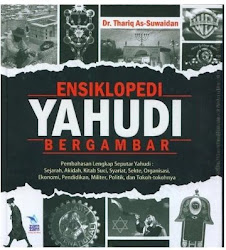World Vision, Prominent U.S. Evangelical Charity, Caught Funding Jihadis
When U.S. officials discovered that World Vision was funding a designated terror group, they ordered WV to stop paying ISRA, but WV maintained its relationship with the organization. In January 2015, WV said it had "discontinued any future collaboration." Yet almost a year later, WV posted a job position working with ISRA in December 2015, apparently indicating it had not ceased collaborating as it claimed.Yisrael Medad: Update on Cordoba: "cultural reductionism"
Around the same time, World Vision partnered with yet another group that "has helped fund the Hamas military wing," the Humanitarian Relief Foundation (IHH).
In 2012, World Vision was exposed using Australian government dollars to fund a terrorist front group operating in the West Bank. World Vision was funding the Union of Agricultural Work Committees (UAWC), a front group for the U.S. terror designated Popular Front for the Liberation of Palestine (PFLP).
Australian Solicitor Andrew Hamilton, who worked with the Israel Law Center which exposed the funding, told the Jerusalem Post that, "The Union of Agricultural Work Committees is an integral part of the proscribed terror organization, the PFLP, that Australian citizens and corporations are prohibited from providing support to."
In an email to FWI, Hamilton called on the recently elected Australian Government "to initiate a detailed criminal investigation into the Halabi scandal."
"For more than a decade, World Vision Australia has avoided justice in Australia for its criminal activities in funding PFLP terrorism using Australian taxpayer money obtained by deception," Hamilton told FWI.
"It would be reasonable to assume that if a smaller organization, whose CEO [Tim Costello] was not the brother of a former federal Treasurer [Peter Costello], had similarly deceived the Australian Government to obtain taxpayer funds which were then sent to terrorists, then they would have been prosecuted to the full extent of the law." (FWI has attempted to obtain a response from the Costellos and from World Vision Australia, but has been unsuccessful.)
In 2010, World Vision partnered with a group headed by a PFLP operative, Khaled Yamani, who led the Palestinian Children and Youth Foundation in Lebanon. And a few years prior to that, WV signed joint memoranda with the U.S. designated terror group Interpal, a financial supporter of Hamas.
WV responded to FWI's inquiry regarding the claims made by Cliff Smith in an email declaring, "We remain adamant we are committed to a positive relationship with Israel in our humanitarian work and we do not now, and never have, supported terrorism."
World Vision portrays itself as a "global Christian humanitarian organization." McDonnell asks how WV's support of Islamist terrorists is really in line with the Gospel message it presents. "To see this activity from World Vision in Sudan and then continuing in Israel too—it just makes me wonder: 'What kind of Christians are supporting a group that is funding terrorists?'"
Spanish Church ‘accused of glossing over Muslim identity of Cordoba’s Great Mosque’Telling a Story Founded the Jewish Nation
February 28 2023,
The Catholic Church has been accused of glossing over the Muslim identity of the Great Mosque of Cordoba with a visitor centre that emphasises its Christian origins.
The Church’s planned centre for the mosque, which has served as a cathedral since the Spanish city’s reconquest by Christian forces in 1236, aims to “correct” what it deems to be an overly Islamic vision of the city’s past.
“The need to redesign the entire space [of the mosque area] derives from the finding that Cordoba is marked with a very powerful cultural label: that of a Muslim city,” said a report by Demetrio Fernandez, the Bishop of Cordoba.
The mosque has served as a cathedral for hundreds of years and is used for traditional processions at Easter
“The cultural reductionism is so strong that it has the capacity to eclipse the brilliant Visigoth, Roman and Christian [periods]..."
So, Muslims are engaged in cultural reductionism of Jerusalem as the capital of Judea, where the Temple stood on Mount Moriah?
Many of the basic fundamentals of the seder—not only eating matzah and bitter herbs, but also relating the story of the liberation from Egyptian bondage to one’s children—can be found in Exodus 12, which is set in Egypt just before the tenth plague. By imagining what this archetypal seder might have been like, Cole Aronson explores the ritual’s meaning for Jewish history:
You don’t tell the children they were once slaves in Egypt, because that’s all they know. But it wasn’t always so, you tell them—long ago, their ancestors enjoyed over a century of freedom under God. God chose to raise the patriarchs up from the idolatry of their native culture and gave them a covenantal life. A famine some generations later compelled the chosen family to live in Egypt, first as guests and then—until now—as slaves. Tonight, God will keep His promise to the patriarchs and restore the Israelites to His service.
What the parents of the Exodus told their children was the very first maggid the first “telling” of Passover night. But the story as originally told didn’t commemorate the founding of the Jewish nation. Telling the story founded the Jewish nation.
Until the Exodus, the before-time of the patriarchs was a rumor whispered by strangers subjugated in a strange land. On the Exodus night, teaching the children about God’s choice of Abraham converted his descendants into his self-conscious heirs. A free nation was created by restoring a memory of itself. The pageantry of the seder is often and correctly said to recreate the Exodus night in order to tell a story. The reverse is also true. Jews recreate the Exodus night in part by telling a story that the Exodus parents must have told their own children 3,500 years ago, and with the same function—initiating youngsters into the chosen people of God.


























.jpg)





